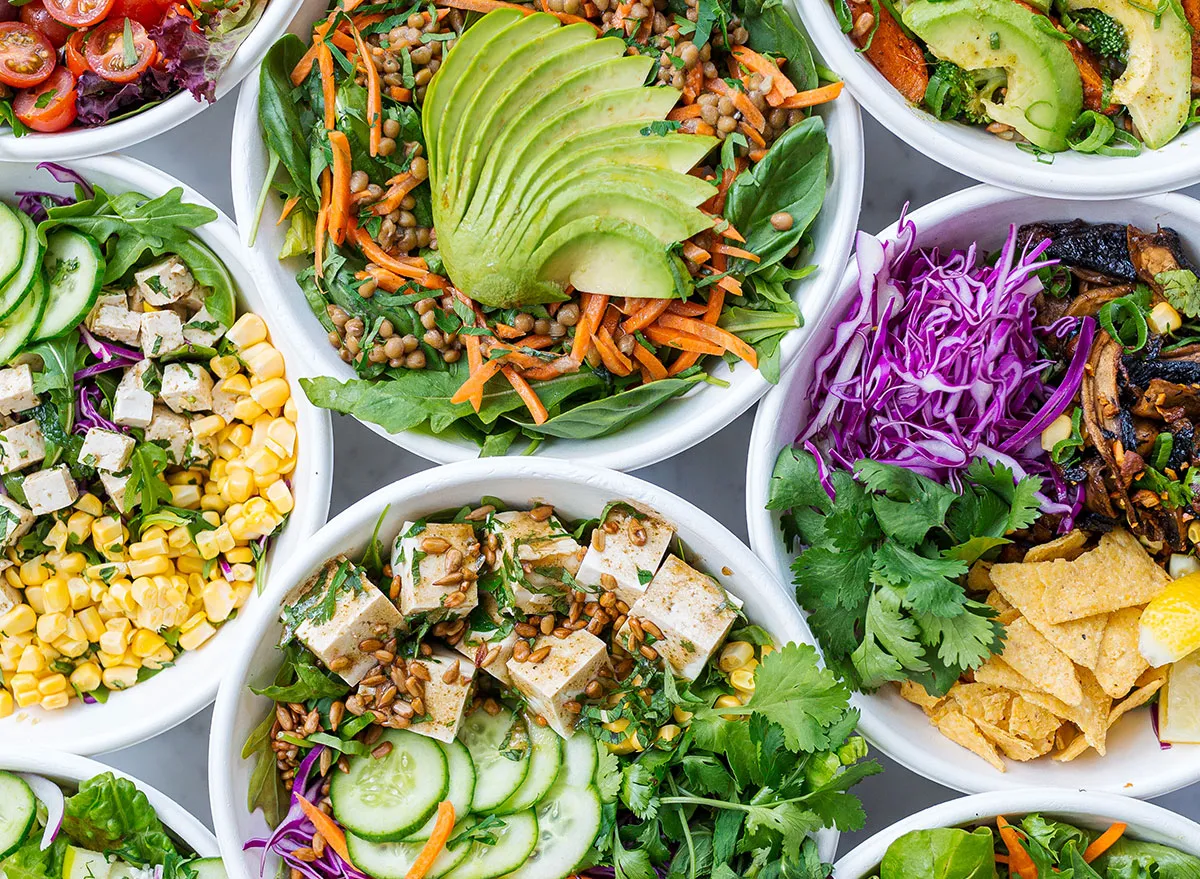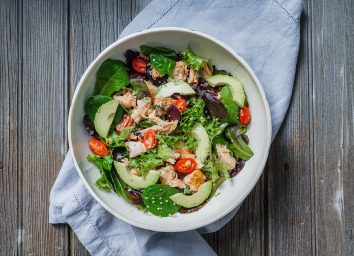One Major Effect of Eating Salads Every Day, Says Science
One of the great things about salad is you can make it what you want by including your favorite lettuce, vegetables, protein, toppings, and dressing. It truly is one of the most customizable meals out there. Chopped, mixed, and tossed, there may be nothing revolutionary about a veggie-packed salad as far as health foods go, but what exactly makes a salad so good for you? If you start eating a salad every day, the primary side effect you will notice is a huge boost in nutrient consumption. The nutrients you get will largely be dependent on the ingredients you choose, but there are likely a few vitamins, minerals, and other nutrients you can count on being present in your salad. (Related: What Happens To Your Body When You Eat Salad Every Day.) (Related: 100 Unhealthiest Foods on the Planet.)
Fiber is found in fruits, vegetables, whole grains, and legumes, all common ingredients in salads. There are two forms of fiber you will get from food, and both provide health benefits. Insoluble fiber is the primary type you’ll find in salad ingredients as it is more widespread in food sources, and this form of fiber is known to improve digestive regularity by adding bulk to stool and allowing it to pass through your system quickly. Soluble fiber, which is found more specifically in legumes, citrus, and peas, is less concentrated in food sources and thought to lower blood cholesterol and improve blood glucose control. Women should aim for at least 25 grams of fiber daily while men should consume 38 grams, minimum. You can maximize the fiber in your salad by loading up on dark leafy greens, a variety of veggies, beans, and some fruit, like berries and orange segments.
Vitamin C is another nutrient you’re sure to get a boost of in your next salad. You may associate Vitamin C with citrus, and that is true, however many vegetables contain this valuable nutrient as well. Bell peppers, broccoli, and tomatoes are among the veggies that will provide you Vitamin C, which serves as an antioxidant to protect your cells against damage and may also improve the integrity of tissues, like skin and blood vessels.
With all those dark green leafy vegetables making up the base of your salad, you will also be upping your intake of Vitamin K: a nutrient that plays a role in bone health and proper blood clotting. Your best bet for getting a boost of Vitamin K in your next salad is to focus on dark green lettuces, like kale and spinach, and add in other dark green veggies, like broccoli and Brussels sprouts.
There is a wide array of nutrient benefits you can get from eating salads every day. To maximize this, choose a variety of ingredients and include several different colors of fruits and vegetables to broaden your spectrum of vitamin and mineral consumption.
For more healthy eating news, make sure to sign up for our newsletter!









